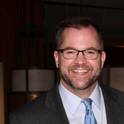
Article
Minimal Hearing Loss in Children: Minimal But Not Inconsequential
Seminars in Hearing
(2009)
Abstract
It has been ~25 years since Bess published his first work on unilateral hearing loss in children. Those early articles triggered considerable interest in the audiology and medical communities and represented an expansion of our focus at that time on children with severe to profound degrees of hearing loss to include those with lesser degrees of hearing loss. Before Bess' work, professionals were of the opinion that minimal degrees of hearing loss were of little consequence to a child's development. However, these early studies demonstrated that children with minimal degrees of permanent hearing loss were, in fact, at considerable risk for academic and behavioral problems. Today those problems persist, and we are still wrestling with which children with minimal degrees of hearing loss require intervention, what type(s) of intervention is most effective, and whether preventive measures exist to avoid the commonly reported problems known to plague some of these children. This article reviews the early studies conducted by Bess and his colleagues documenting the psychoeducational, audiological, and behavioral difficulties experienced by children with permanent unilateral and minimal bilateral hearing loss. In addition, contemporary studies are reported along with a summary of current thinking on the appropriate management of these populations.
Keywords
- Minimal hearing loss,
- Unilateral hearing loss
Disciplines
Publication Date
May, 2009
DOI
10.1055/s-0029-1215437
Publisher Statement
Copyright 2009 Thieme Publishing
Citation Information
Tharpe, A.M., Sladen, D.P., Dodd-Murphy, J., & Boney, S.J. (2009). “Minimal Hearing Loss in Children: Minimal But Not Inconsequential”. Seminars in Hearing, 30(2):80-93
